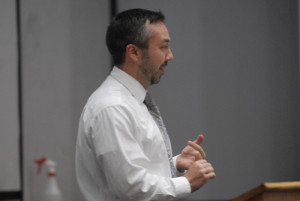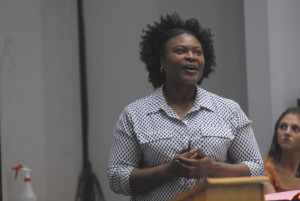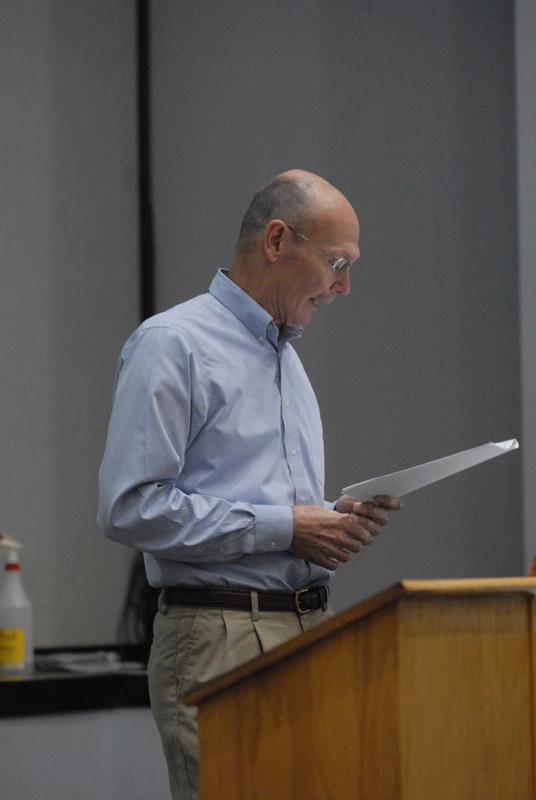The Social and Environmental Justice program and Students for Peace and Justice at the University of Wisconsin- Platteville co-sponsored a four-person panel discussion forum regarding the Syrian conflict, Oct. 13.

Panel members included some of UW-Platteville’s own faculty members: Travis Nelson, associate professor of political science, David Rowley, professor of history, Shan Sappleton, assistant professor of political science and Nancy Turner, professor of history.
Each panelist spoke about a different topic related to the Syrian conflict.
Nancy Turner spoke first, outlining the historical background of Syria.
Turner highlighted Syria declaring their independence from France in 1946. From the start of their independence, all the way to the 1970s, Syria has struggled with political instability until leader Hafez al Assad became the ruler.
After passing in 2000, Hafez’s son Bashar al Assad took over the reign and remains the current governmental leader.
This current civil war was prompted by what people refer to as the “Arab Spring” which was the series of uprisings from the people of the Middle East in hopes to overthrow their oppressive government.
Since March 2011, 100,000 Syrians have been killed and two million refugees have fled to other countries. Due to this, countries taking in Syrians have been forced to live in subhuman circumstances. These countries are now lacking a food and water supply. Moreover, from the facts presented during the forum, it seems like there is no end in sight when referring to the horror of starvation, destruction and killings. Travis Nelson followed Turner’s presentation with an overview of chemical weaponry.
A treaty was created in 1997 that outlined that if a state chooses to sign, they may not use chemical weapons of any kind under any circumstance. To this date, 189 member states have signed-Syria not included.
Nelson stated that since 2011, approximately 600,000 Syrians have been killed through the u

sage of conventional weapons, putting into perspective the threat that violent chemical weaponry can cause.
In August 2013 alone, nearly 1,400 people were killed due to chemical weapons, 400 of which were children.
Travis said that he believes that the United States’ international communication needs to aid in the creation of a worldly norm against chemical weapons.
“The norm needs to be upheld if we want something to be done,” Nelson said. “It is in our best interest to make sure this norm lasts.”
David Rowley elaborated on Russia’s interests and overall perspective. He described Russia’s interests in the Syrian conflict as real and immediate.
The final panelist was Shan Sappleton who spoke about the other external key players.
Sappleton mentioned how many of these key players are not typically highlighted in the media, such as China.
“Shan’s actor’s-involvement viewpoint was very interesting. I did not know China funded Syria 500 million dollars a month,” Greg Atnip, junior political science major said.
Professor Sappleton also shared that we should consider all key players interests but al
l players must agree on a plan for it all to work.
The Syrian conflict and the overall response from leading world powers offer insight as to how different nations resolve social and environmental justice issues.




